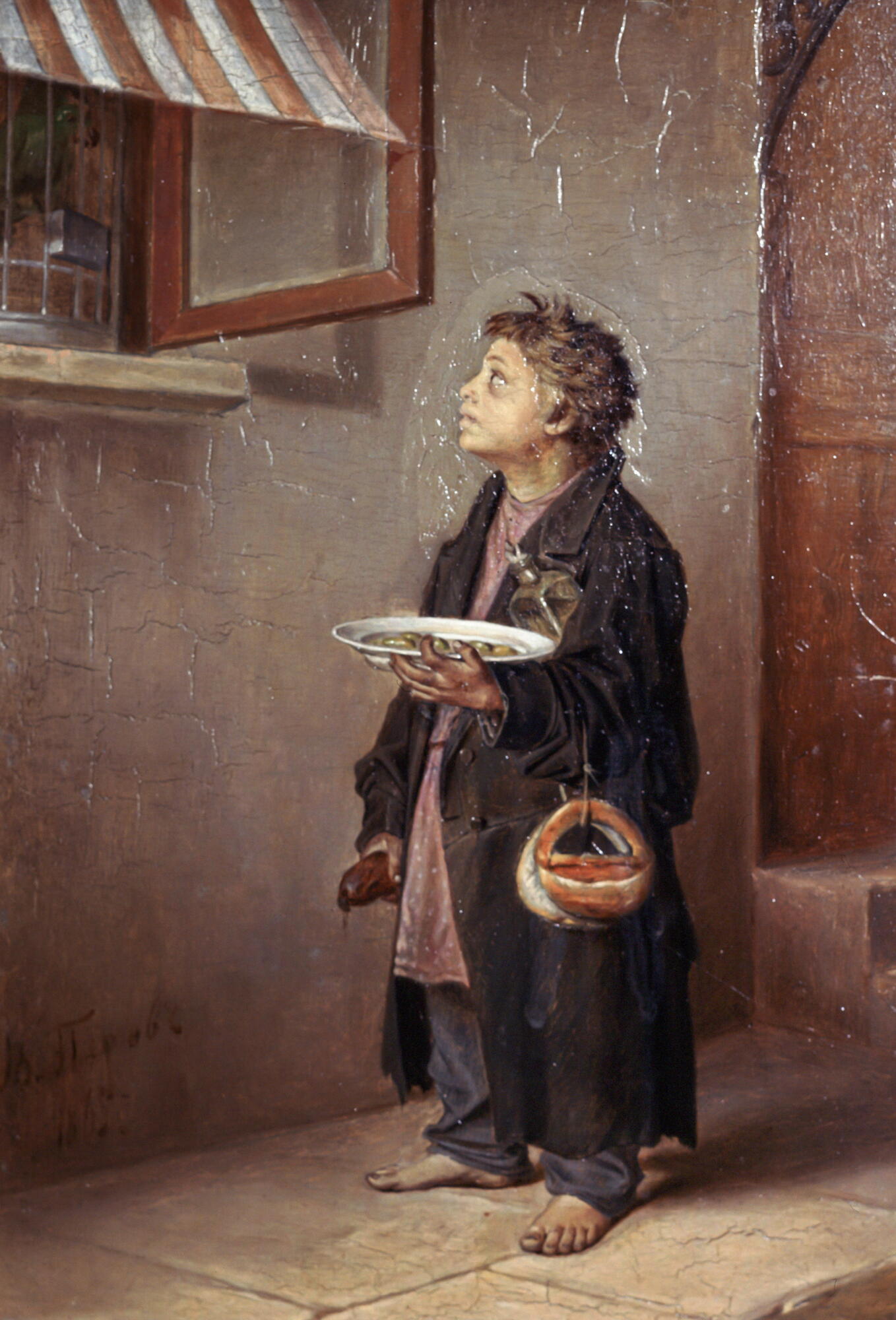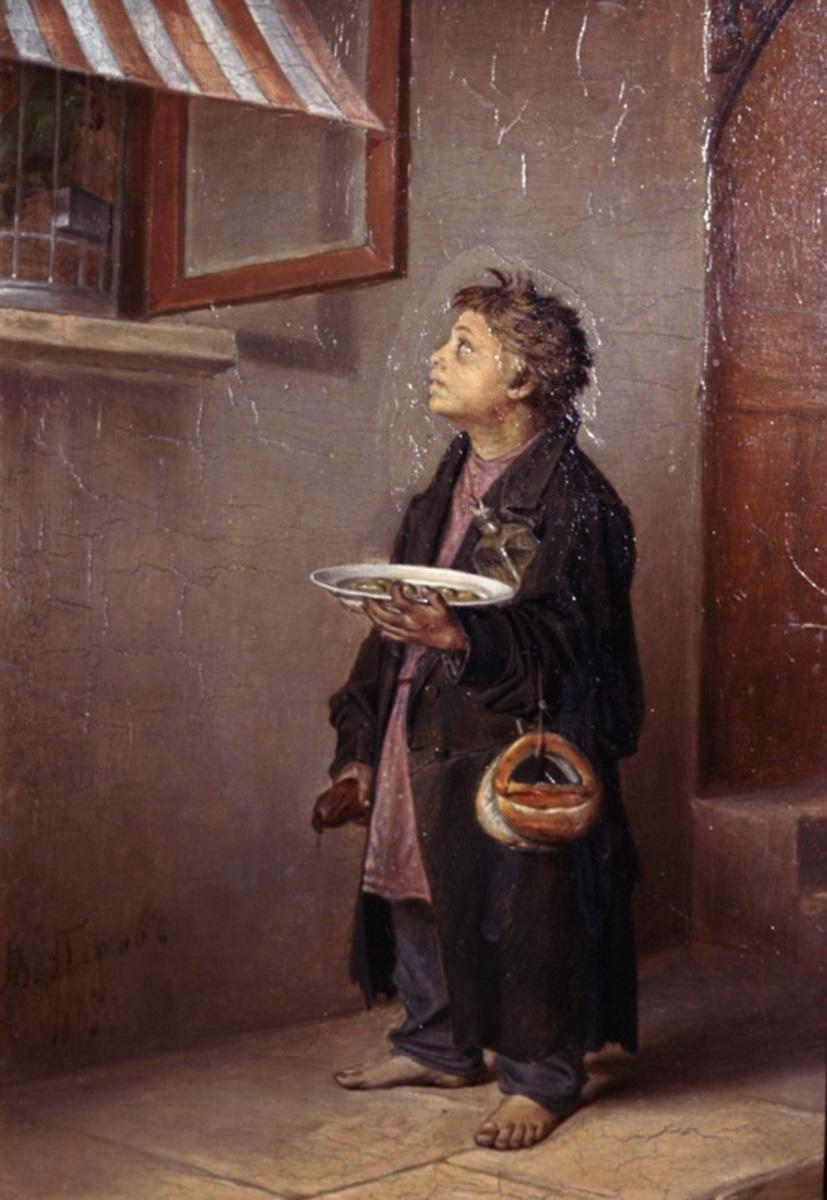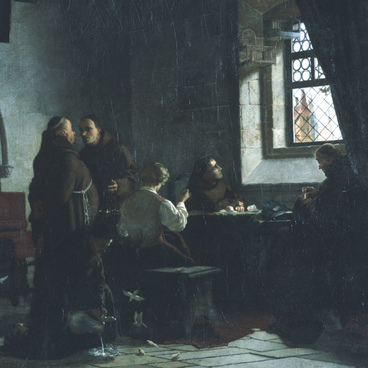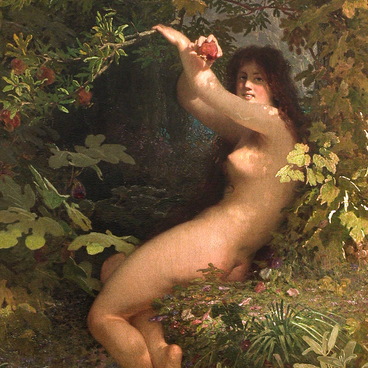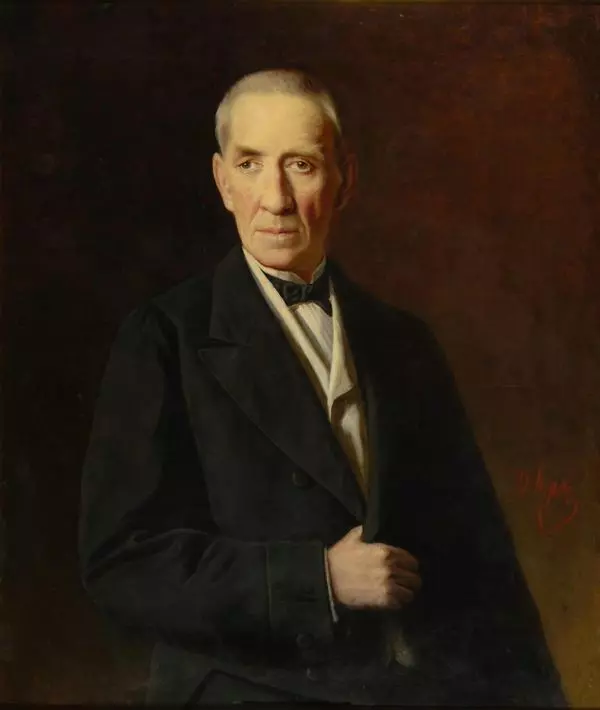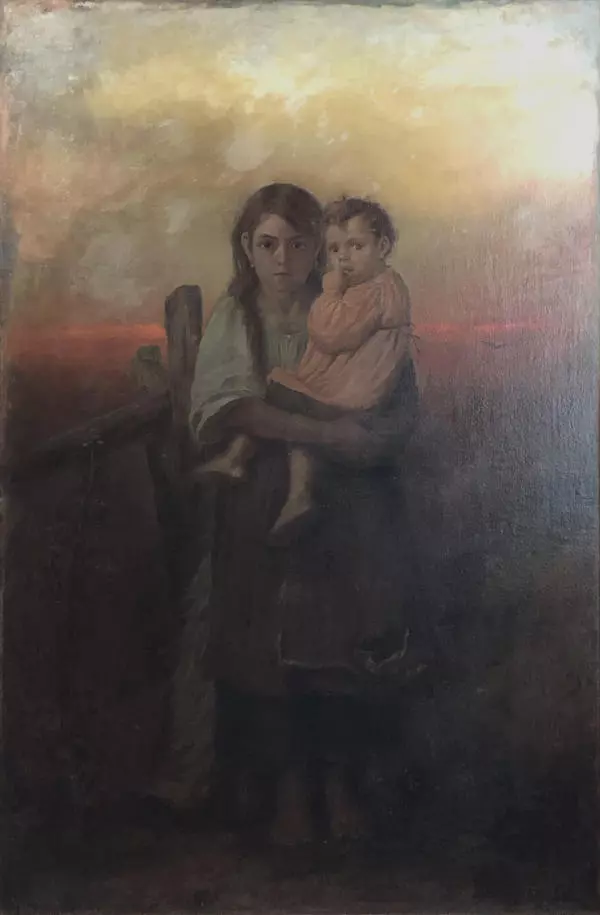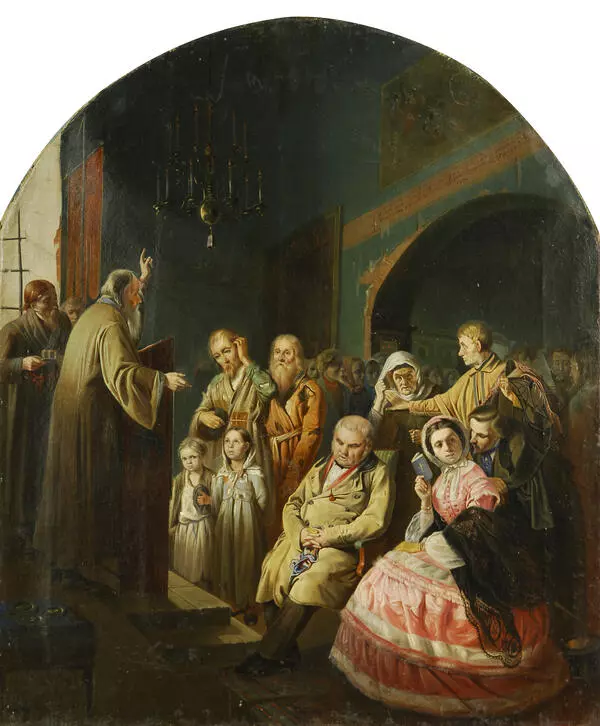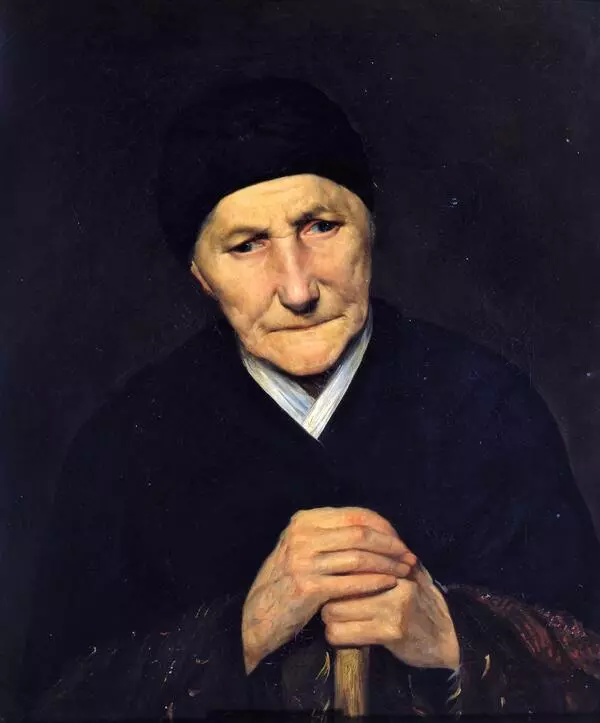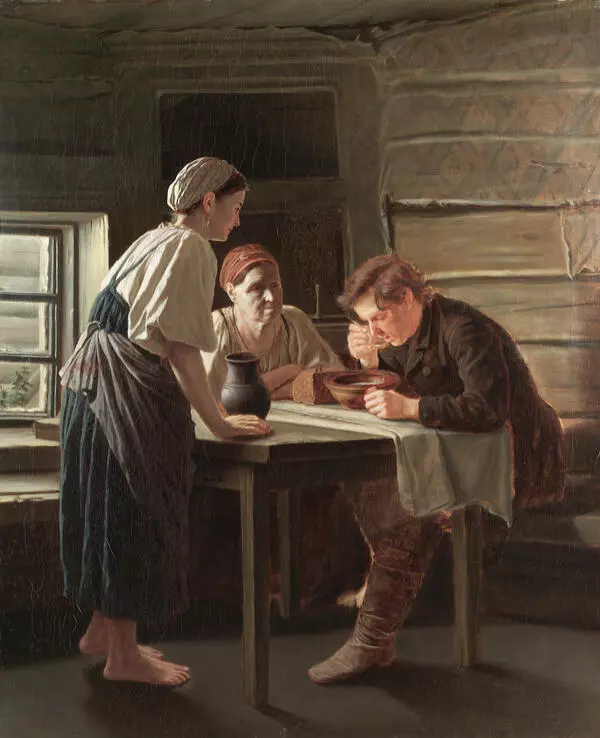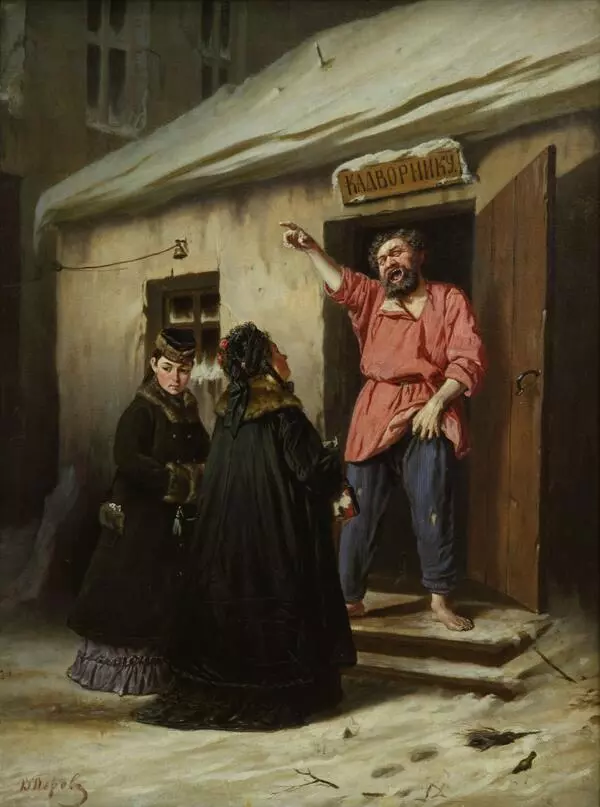“The Apprentice Boy” is one of Vasily Perov’s studies for his largest and most emotional painting “Troika. Apprentice Workmen Carrying Water.” At the same time Perov painted other pictures that dealt with social issues — “Orphans in the cemetery” and “Seeing Off of the Dead Man.” The art historian Vladimir Stasov wrote, “All these children, probably, were born in a village and brought to Moscow to learn a trade. But how severely they suffered from this ‘trade’! Their tired, pale faces have an expression of hopeless suffering and traces of constantly being beaten; a whole life is told through their rags, poses, and anguished eyes.” The study “The Apprentice Boy” was commissioned by the Moscow Society of Art Lovers and raffled off. In 1968, the Ulyanovsk Art Museum bought the painting from a private collection.
Vasily Perov was a history painter, the founder of the genre of socio-psychological portrait. The artist started with satirical sketches of European streets then took up the large theme of the “humiliated and insulted.” By the way, Perov painted the most famous portrait of Fyodor Dostoevsky. Perov founded the Association of Traveling Art Exhibitions, which at various times included Ilya Repin, Vasily Surikov, Grigory Myasoedov, Ivan Shishkin, Viktor Vasnetsov, Arkhip Kuindzhi, Isaac Levitan, and Ivan Kramskoy. The Wanderers, as these artists were called, opposed themselves to the academics and found inspiration in populism.
Vasily Perov was a history painter, the founder of the genre of socio-psychological portrait. The artist started with satirical sketches of European streets then took up the large theme of the “humiliated and insulted.” By the way, Perov painted the most famous portrait of Fyodor Dostoevsky. Perov founded the Association of Traveling Art Exhibitions, which at various times included Ilya Repin, Vasily Surikov, Grigory Myasoedov, Ivan Shishkin, Viktor Vasnetsov, Arkhip Kuindzhi, Isaac Levitan, and Ivan Kramskoy. The Wanderers, as these artists were called, opposed themselves to the academics and found inspiration in populism.
